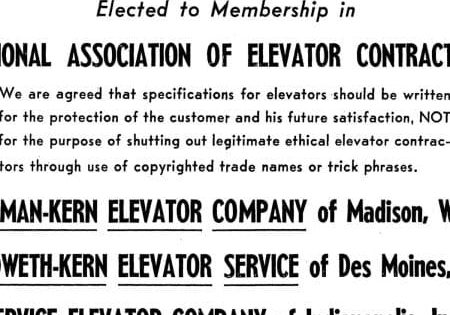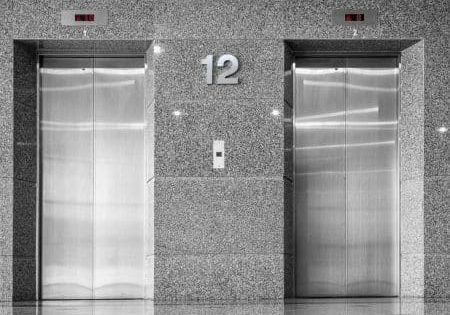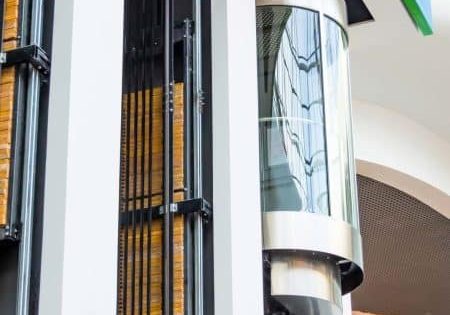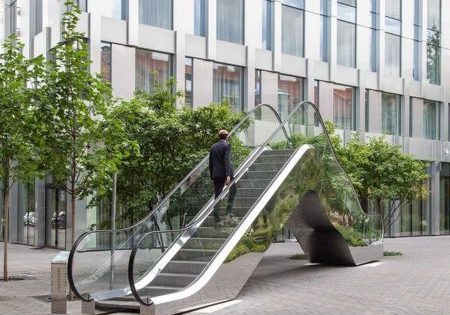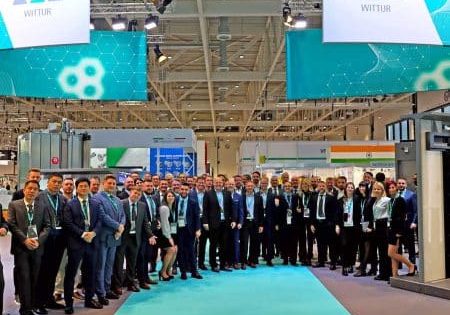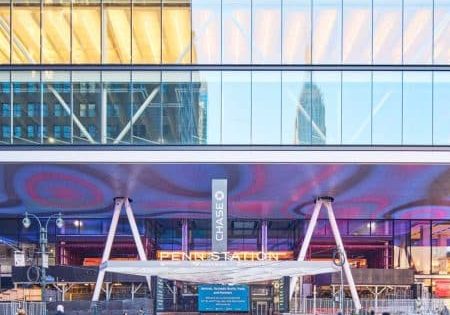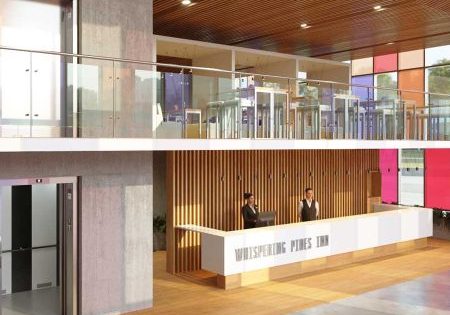Forging Ahead
Apr 1, 2024

Your author (MJ) speaks to NYC elevator impresario Don Gelestino (DG) about his early ambitions, path to the elevator industry, M&A and industry outlook.
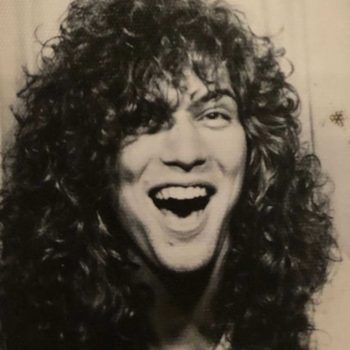
Your author has known Don Gelestino, CEO and president of Champion Elevator Corp., for some time now — first when he owned Ver-Tech Elevator and now leading Champion Elevator. He and I share a passion for the NYC elevator industry, mainly for giving us our careers and for the amazing skyline it has created. Given the state of NYC and its struggles to get back on track and recover from the pandemic, I thought it was time for a “10 Questions” between two NYC elevator guys. I ran into Gelestino at interlift in Augsburg, Germany, in October 2023, and he agreed to share a little about his life and elevator-industry career.
MJ: What was it like growing up as Don Gelestino? What were your parents and siblings like, and who was most influential to you in your younger years?
DG: I grew up in a moderate household. When I was younger — pre-third grade — my father was an oil delivery man, and my mother was a stay-at-home mom who raised myself and my three younger sisters. Although those years were tough financially, they were some good years. Every November, my sister Lisa and I used to help my mother deliver phonebooks in our family station wagon. I think we delivered more than 1,000 each year. I later learned that was how my parents were able to afford our Christmas gifts. Also, in those years I would ride along with my father on oil deliveries, and some customers would give me cookies! I know this sounds silly, but it was perfect and made me want to ride along every opportunity I got.
When I was in third grade, there were a lot of changes. I moved into a new school and house. My father was now on the Nassau County Police Force, so our time riding together was over, and he started working shifts like 8 a.m. to 4 p.m., 4 p.m. to midnight, then midnight on. While in third grade, I had a newspaper route as a job and would also take on other kids’ routes when they were sick or on vacation. I walked past a business named Gunthers Greenhouse in Oceanside on Long Island one day and asked if they had any openings. To my surprise, they let me work two hours a day and then a full day on Saturday. This was amazing to me!
So, my day as a third grader looked something like this: Wake up. On the way walking to school, drop off a minnow fish trap at a creek and let it sit until I was out of school. On the way home from school, go to the creek, put the minnows in a bottle, drop them off at a bait store where the owner, Mark, would give me US$1 and a can of Dr Pepper. Go home and put the Dr Pepper in the refrigerator, grab my bike and deliver my papers. After that, go to Gunthers Greenhouse and work until 5 p.m., then return home to a cold Dr Pepper and dinner with my family. I did that for a long time, but traded the paper route in sixth grade for playing the bass guitar. I still worked at the greenhouse until 11th grade, when my family left New York and moved to Maine (which was real interesting … ).
MJ: How did you enter the elevator industry? Tell me about how it started up to where you launched Champion Elevator.
DG: As I mentioned, I was a bass player from sixth grade until I moved to Maine at the end of 11th grade. So, after I graduated Marshwood High School in South Berwick, Maine, which was a one-year run, I actually hitched a ride back to NYC with US$21, a bass guitar and a small bag of clothing (no jacket). I was on a mission to be a rock-star bass player. Well, you can see by this interview where that went. But, what did happen was that I befriended two Irish brothers — one was a bouncer at a club where I played bass and the other was a great guy who always frequented the club. At the time, these guys let me stay on their couch as I had no home or money. One morning, the brothers woke me up and said, “We need a helper, and you have been here for a few months paying nothing, so you have to come with us.” My response was, “What do you guys do?” I thought one was a bouncer and the other a professional drinker. They then mentioned their father owned an elevator company (DECO Elevator). So, I went to work with them and stayed at the company for seven years.
After my seventh year with DECO, I started Ver-Tech Elevator. A few years later, I took on a partner, Bill Krapf. Ver-Tech was a great company, and Bill was a great partner. We sold Ver-Tech to United Technologies (UT) in 2010, and we had a five-year non-compete agreement. I worked at UT for three of the five years, but the big corporate structure was not for me at that time. After the five-year non compete was up, I started Champion Elevator with Joe Corrado, Donna Scibetta, Val Iosevitch, Rob Zalud, Rocco Patto and Larry Nyquist. The early years were amazing and incredibly fun growing the business, for sure!
MJ: Married? Kids? How does your home life affect your work life?
DG: I have been married for 30 years this year, and have two great kids, as well as a granddaughter. The work-life balance is a thing I struggle with, and I am incredibly lucky that my wife, Nadine, puts up with the hours and commitment I have given to my business and the industry. I am also blessed to have good relationships with my children, as I really did not spend a lot of time with them. When I did, though, it was quality time.
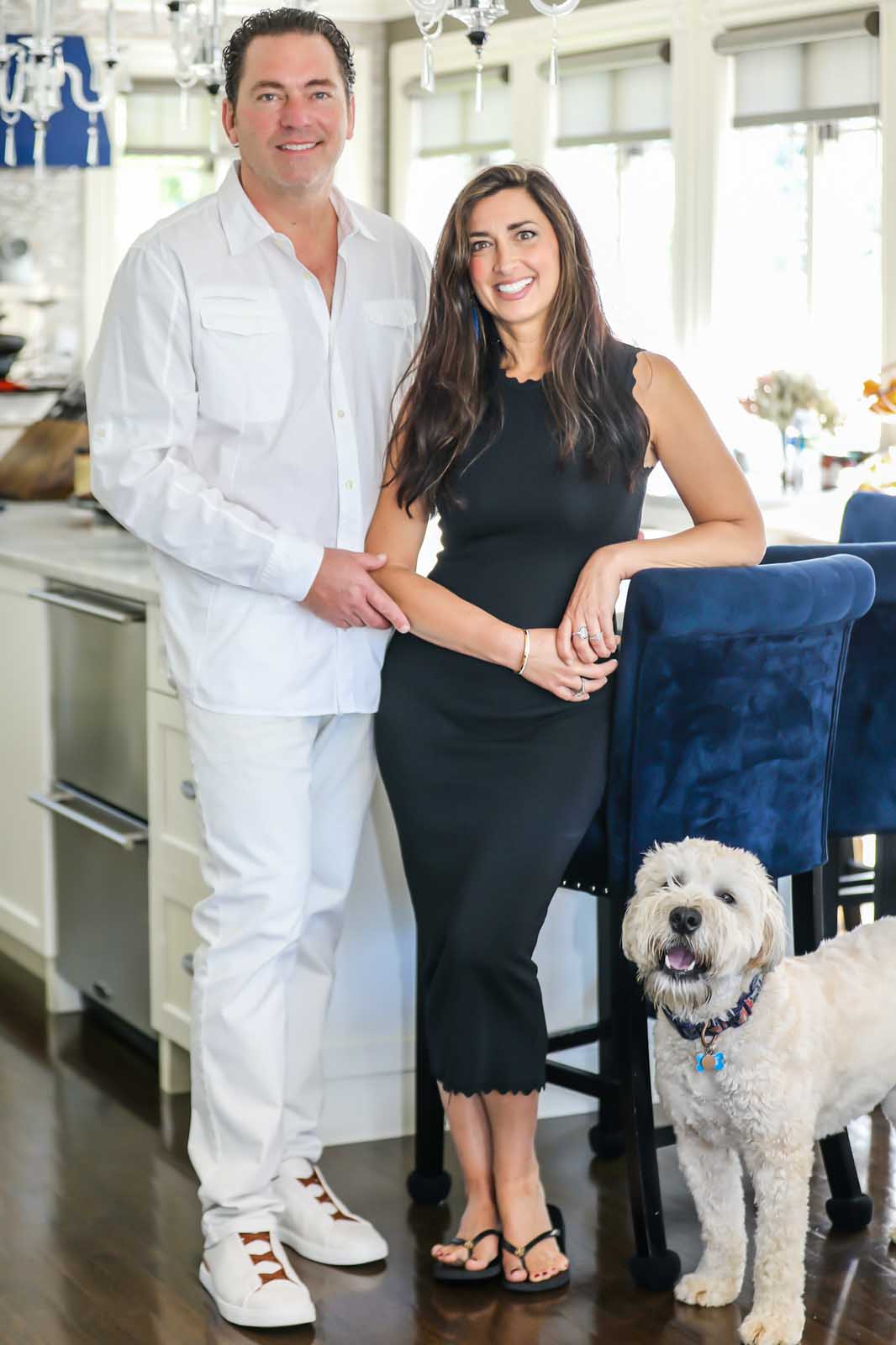
I hitched a ride back to NYC with US$21, a bass guitar and a small bag of clothing (no jacket). I was on a mission to be a rock-star bass player.
MJ: You started both Ver-Tech and Champion Elevator. Each probably had its own challenges. Explain to us those challenges.
DG: I never had any college or financial training, so the biggest challenge was understanding cashflow, work-in-progress schedules, balance sheets, etc. I also had no business-school training, so the way I approached both of my companies was very simple: Treat people better than even the way I would like to be treated and forge ahead. The one thing I learned back from my years at Gunthers Greenhouse was an amazing lesson from Bob Gunther himself: All he asked for was a good day’s work, but with that came knowledge, rewards, friendships and a culture that was second to none. I have always tried to pay it forward with all I do.
MJ: You’ve been at the forefront of the acquisition and investment activity that’s taken place in the elevator industry over the past couple of years. Who do you approach, and how do you seek out an acquisition candidate?
DG: In a perfect world, we would like to partner with like-minded people or companies that are all about customer service and culture. In most cases, this has not been the case, and it’s up to Champion to foster those relationships with the post-acquisition employees. I believe we have been successful at that.
MJ: How do you construct your financing and the framework of the deal?
DG: We have third-party debtors that look at the deal and weigh in on if they like it or not. They then take my input as an industry expert, and we either move forward or pass on the acquisition. We have closed 14 deals, walked away from six and missed a few good ones that our competitors got — which I think was good for them.
MJ: Once you have a handshake, what’s next?
DG: We usually get the handshake deal in the form of a “term sheet” that then becomes an asset purchase agreement, which is basically the term sheet with a ton of additional language — reps, warrantees, schedules, etc. It’s a grueling document, and I congratulate all the lawyers on becoming lawyers at that point because they should have all the private jets!
MJ: This is a bit tougher question, but one that you have some experience with. Safety is a big, if not the number one, issue in our industry. Can you take us through how you structure safety as the primary motivation for your business?
DG: We have built a safety policy that is extremely comprehensive, and we are always updating and enhancing it. Our field technicians and apprentices are all union-trained and certified, and Champion has a safety app through which all our people take weekly toolbox tests. On a quarterly basis, we bring all field personnel in for a safety class in which we present varied materials and have vendors that give safety classes in conjunction with our own program. We promote items over and above elevator safety and get into CPR, driver safety, chemicals and other topics. Safety is the most important part of the elevator business.
We have closed 14 deals, walked away from six and missed a few good ones that our competitors got.
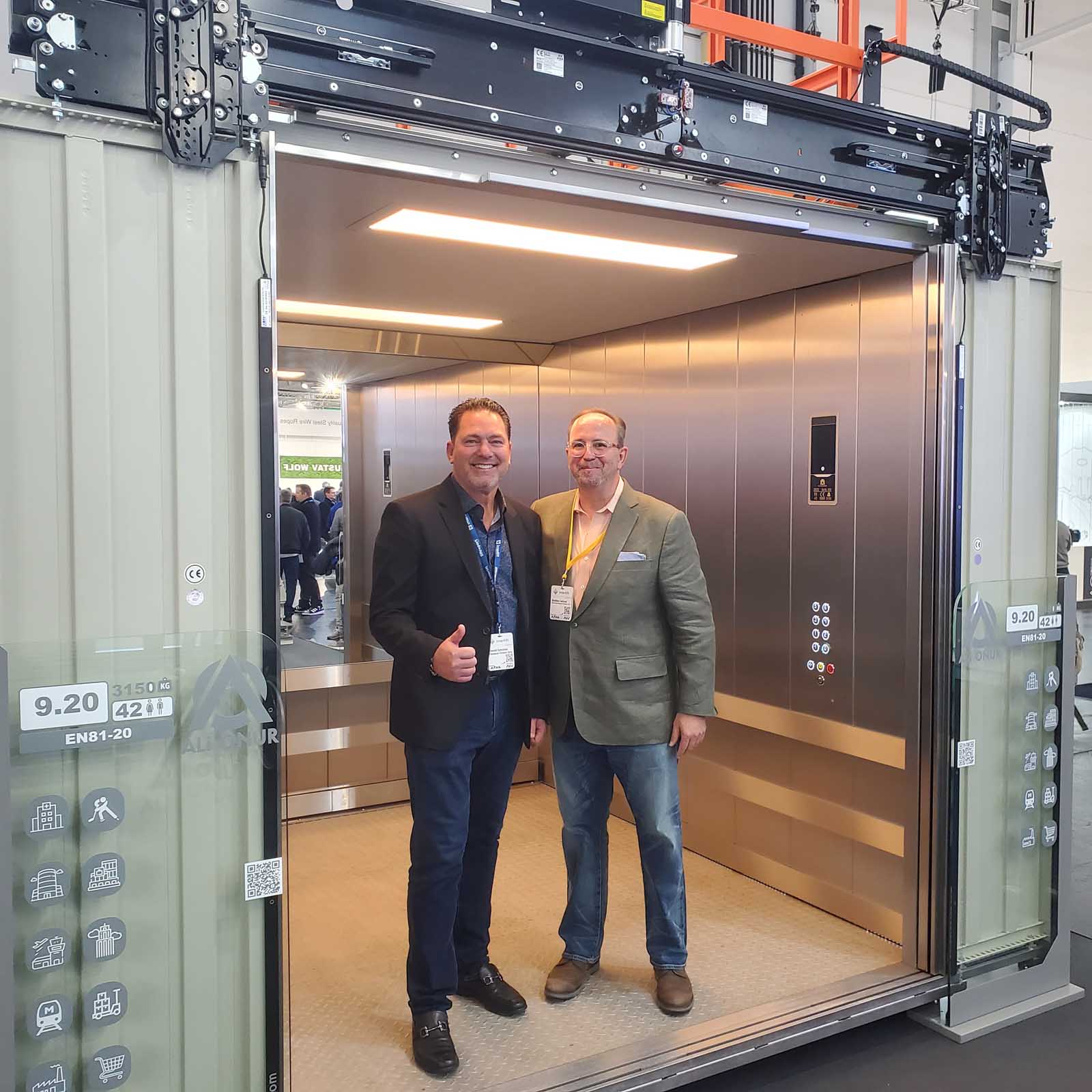
MJ: Does Champion Elevator have a “catastrophic accident” handbook?
DG: We have certain protocols for incidents such as hurricanes, blackouts, employee fatalities and riding-public fatalities, as well as procedures for other incidents like vehicle accidents, etc.
MJ: You cannot be on LinkedIn and not see a Don Gelestino post. Through that, I know you’re a big concert/music fan. What are the three best concerts you’ve ever been to? I also know you’re a mean guitar player. How often do you play?
DG: I really love seeing (American guitarist and singer-songwriter) Joe Bonamassa (and we have the same birthday — May 8). I always go to Jazz Fest in New Orleans, and I love all types of music. The one concert that will always be a favorite is Stevie Ray Vaughan and Double Trouble on New Year’s Eve back in the late 1980s. He was a favorite of mine, and then he passed away the next year, so seeing him play was special. I now play a little acoustic guitar and write pieces of songs. Every now and then, I play the bass. I think after I retire one day, I will play more than I do now.
MJ: Name three people you’d want to have dinner with and why.
DG: That is a hard one and can go in many different directions, such as living or passed away. I would say, all situations considered, it would be one musician, one philanthropist and one entrepreneur. I would have to dig into how they have the bandwidth to do everything they were able to do and what their advice to me would be. With that said, I would say Warren Buffet, the Buddha and Elton John.
MJ: Thanks for answering my “10 Questions.” My last one has to do with our industry — specifically, the NYC elevator industry, which I know you hold dear to your heart. NYC building occupancy is low, but coming back. New-construction permits are at a new low. What do you see the NYC elevator industry looking like in five-10 years?
DG: I do believe that the 2026 code regarding dual plunger brakes and unintended motion will help keep modernization and repairs in a good place. Once rates come down, I believe some capital may come back for re-financing. However, one thing we have seen is that many buildings are going back to the banks, with owners giving up ownership. At some point, other investors will pick up those deals and, if the building has the bones to be renovated, then I believe elevators will be part of that work. If the building is not so fortunate, then demo and new construction will happen, which means more elevators! In all cases, I believe the industry will always be okay. We have seen this before. New construction is mostly affected, followed by modernization. Now, with some vacancies, maintenance and repair come into that fold. But, in general, I believe maintenance, testing and repairs will always be there. Growth is also enhanced by code changes, technology and green initiatives, which are always evolving. So, I think we are all going to be okay.
Get more of Elevator World. Sign up for our free e-newsletter.


